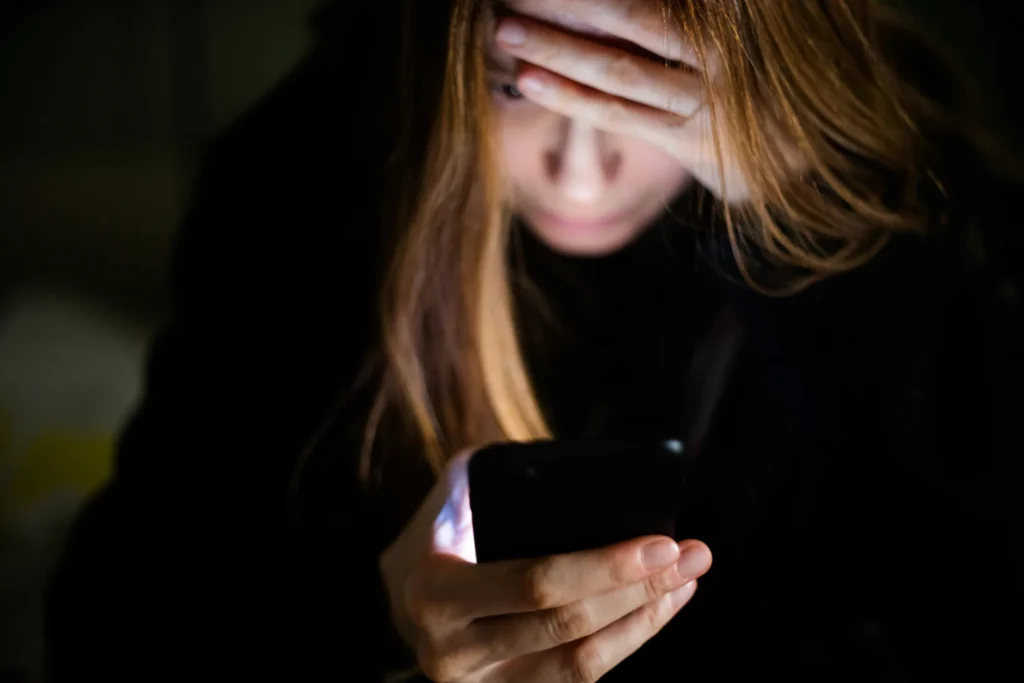A mere phone call is sufficient to instill fear in the hearts of Generation Z.
While millennials and older individuals are accustomed to easily making phone calls, having grown up during a time when landlines were the standard, this comfort with phone communication hasn’t necessarily passed down to the younger generations.
Research indicates that Generation Z is experiencing a phenomenon known as “phone phobia,” linked to social anxiety.

Phone calls are giving Gen Z the fear. Credit: Basak Gurbuz Derman/Getty Images
Initiating a phone call by picking up the phone and dialing may appear to be a straightforward task, but for many, it is accompanied by a sense of dread and the anticipation of potential failure.
Despite virtually constantly having a smartphone in their hands, a considerable number of Generation Z individuals would rather let a call ring out than answer it. They tend to favor communication through text and other apps like Snapchat instead.
As reported by News.com.au, a significant portion of this preference can be attributed to the ability to proofread messages and maintain a record of conversations. Besides, having receipts can always be a useful practice, according to this perspective.
Texting also affords them the opportunity to carefully consider their responses, eliminating awkward silences. It proves to be a faster and more convenient mode of communication, allowing for multitasking without the need to halt everything to answer a call.
A member of Generation Z shared with the media: “The idea of making a phone call makes me anxious. When I must make a call, I typically take the time to sit down and jot down possible responses to anticipate what I think the other person might say, just to ensure I am prepared.”
Indeed, the mere idea of making phone calls triggered such anxiety in a 21-year-old that they would occasionally burst into tears. Erin McGovern elaborated to the outlet, saying, “If I have to call someone important, it might even bring me to tears.”
“My heightened stress during phone calls is exacerbated by the fear of failure.”

Most Gen Z-ers prefer to text than ever make a call. Credit: Ivan Pantic/Getty Images
She mentioned that she would preemptively prepare responses for potential scenarios when speaking on the phone. However, if the conversation veered away from the planned script, she admitted that her responses often turned “awkward.”
Some members of Generation Z expressed a preference for avoiding situations that required phone calls altogether, while others expressed concerns about potentially missing important information conveyed over the phone as opposed to receiving it in written form via text.
Concerns were raised by some about the fear of being “judged” by the person on the other end of the line, particularly if it involved someone unfamiliar to them.
Another individual added, “Receiving a phone call instills fear in me. I approach it with hesitancy and skepticism. Phone calls make me feel worried and concerned.”
Caitlin Mitchell, aged 21, further commented, “It’s awkward and stresses me out, and I really don’t know why. I’ll go to great lengths to avoid them. If I were forced to make a phone call, I’d likely be annoyed and just try to get it over with.”
Others emphasized that texting provides a greater sense of privacy compared to speaking out loud on the phone. Additionally, some described phone calls as requiring “a lot of effort.”
Experts attribute these challenges with phone anxiety, in part, to the trend of children acquiring smartphones at a young age and consequently not developing the essential phone communication skills.

Despite growing up with phones from a young age, Gen Z are not accustomed to speaking over a call. Credit: skaman306/Getty Images
Mary Jane Copps, renowned as The Phone Lady, shared with CBS News: “It turns out that conversing on the phone is a skill, and for decades, we didn’t recognize that, because we all did it.”
She holds the belief that the situation may continue to worsen, stating, “In terms of anxiety, I do see that increasing.”
Mary Jane also offered some tips for improving phone conversations, suggesting, “Cut out pictures from a magazine of a smiling man and woman and look at that while you’re on the phone, so you feel more comfortable with how the other person is receiving your conversation.”
While the advice makes sense, many of us are still resorting to picking up the phone only as an absolute last option.





